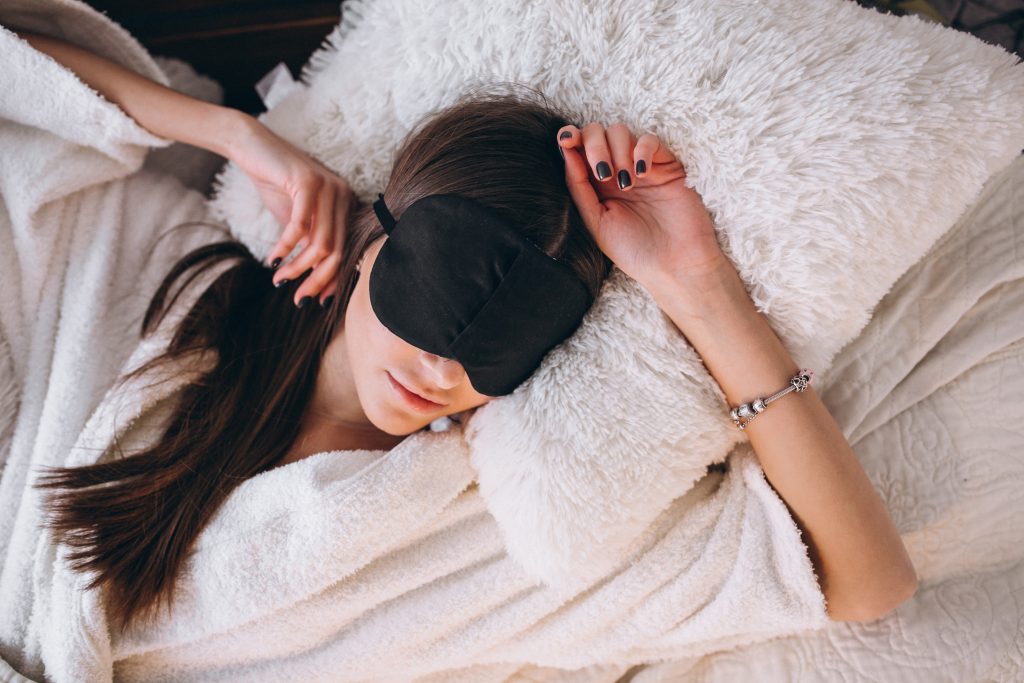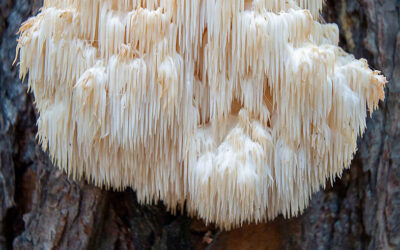The Best Supplements for Sleep
There are a number of different factors that can contribute to sleep problems, including stress, anxiety, depression, pain, and medical conditions like sleep apnea. Sometimes, making lifestyle changes like exercising more or cutting back on caffeine can help. But for many people, these changes aren’t enough, and they need a little extra help getting a good night’s sleep.
If you’re looking for something to help you sleep better, you may be wondering about supplements. There are a lot of different options out there that supposedly address sleep disorder symptoms, so it can be tough to know where to start.
This article will take a look at the best sleep supplements and natural sleep aids, based on science.
GABA
GABA is an amino acid that acts as a neurotransmitter in the brain. It plays a role in regulating communication between nerve cells and is involved in many processes, including muscle tone, anxiety, and sleep.
Research suggests that GABA may help to improve sleep quality by reducing anxiety and promoting relaxation. A small study by the National Center for Complementary and Integrative Health found that taking a GABA supplement helped people with insomnia fall asleep faster and sleep more soundly.
Another study showed that taking a combination of magnesium and GABA was effective at improving sleep quality in people with restless legs syndrome.
If you’re looking for a natural sleep aid to help improve your sleep, consider trying a GABA supplement. Just be sure to talk to your doctor first to ensure it’s safe for you.
Recommended GABA supplement: GABA by Pure Encapsulations
Melatonin
If you’re looking for a supplement that can help you sleep, melatonin is a good place to start. Melatonin is a hormone that helps regulate your body’s sleep-wake cycle. Your body naturally produces melatonin, but it also responds to light exposure. When it’s dark outside, your body increases your melatonin levels, which makes you feel sleepy.
Melatonin supplements can help people who have trouble sleeping for various reasons, including jet lag and shift work. Melatonin is available over the counter in many countries. The usual dose is between 1 and 10 mg before bedtime.
Some research suggests that taking melatonin supplements might improve sleep quality and duration in people with insomnia. However, not all studies have found benefit. Melatonin supplements can sometimes cause side effects, such as daytime sleepiness, headaches, and dizziness. So if you experience such side effects, discontinue use and speak to your health care provider.
Recommended Melatonin supplement: Goodnight Gummy by Douglas Labs
Magnesium
Magnesium is one of the most important minerals for human health, and magnesium supplementation is a great way to improve sleep quality. Magnesium helps to regulate the body’s sleep-wake cycle and also plays a role in relaxation and stress reduction. A magnesium deficiency can lead to insomnia, so it’s important to make sure you’re getting enough of this mineral if you’re having trouble sleeping.
There are many different types of magnesium supplements available, but the best ones for sleep are those that contain magnesium citrate or magnesium glycinate. These forms of magnesium supplementation are well-absorbed by the body and have been shown to be effective at improving sleep quality.
Recommended Magnesium supplement: Magnesium Glycinate by Pure Encapsulations
L-Theanine
L-theanine is an amino acid found naturally in tea leaves. It’s also available in supplement form and is often taken to promote relaxation and ease anxiety.
Research on L-theanine has shown that it can help reduce stress and promote sleep. A small study in men found that taking 200 mg of L-theanine per day improved sleep quality. Another study showed that taking L-theanine reduced anxiety levels in people with anxiety disorders.
Recommended L-Theanine supplement: L-Theanine from Integrative Therapeutics
5-HTP
5-HTP is a compound that is naturally produced in the body. It is involved in the production of serotonin, which is a neurotransmitter that plays a role in regulating mood, appetite, and sleep.
Some research suggests that 5-HTP may help with sleep by increasing levels of serotonin. A review of studies found that 5-HTP improved sleep quality and duration in people with insomnia.
Another study examined the effects of 5-HTP in people with sleep disorders who were also taking the antidepressant fluoxetine. The study found that 5-HTP increased the amount of time spent asleep and improved sleep quality.
Recommended 5-HTP supplement: 5-HTP from NOW
Herbal Solutions
There are many herbs that can be effective sleep aids. Chamomile, lavender, and valerian root are all popular choices as natural sleep remedies. These herbs can be taken in pill form or as a tea. These are truly natural sleep aids.
Chamomile
Chamomile is a plant in the Asteraceae family. Chamomile tea has been used to help people sleep for centuries. The plant contains compounds that have sedative effects. Chamomile is thought to be relaxing and can help reduce stress levels. Some research shows that drinking chamomile tea before bed can help improve sleep quality.
One study showed that chamomile capsules improved insomnia just as well as the prescription sleep aid Ambien. Chamomile supplements are generally considered safe, but you should check with your doctor before taking them if you’re pregnant or breastfeeding.
Recommended chamomile product: Chamomile drops from Herb Pharm
Lavender
Lavender is one of the most popular and well-known herbs for sleep. It has a long history of use in folk medicine and aromatherapy, and it continues to be one of the most popular essential oils today.
There are several ways that lavender can help you sleep. First, it is very relaxing and can help to reduce stress levels. This can be helpful if you have trouble sleeping due to anxiety or stress. Lavender is also thought to help improve sleep quality by promoting deeper, more restful sleep. Finally, lavender has a pleasant scent that can help to create a relaxing environment in your bedroom, which can further promote better sleep.
If you’re interested in trying lavender to improve your sleep, there are several ways to do so. You can purchase lavender essential oil and add a few drops to your diffuser or diffuser bracelet. You can also purchase lavender pillow sprays or sachets to place on your bedside table or in your pillowcase. Finally, you can add some dried lavender to a sachet and place it under your pillow.
Recommended lavender product: Lavender oil from NOW
Valerian Root
Valerian root is a popular herbal remedy for insomnia and other sleep disorders. It is thought to work by increasing levels of gamma aminobutyric acid (GABA) in the brain. GABA is a neurotransmitter that plays a role in sleep regulation. Some research suggests that valerian root may be as effective as some prescription sleep aids for treating insomnia. However, more research is needed to confirm these findings.
Valerian root is generally considered safe when taken in recommended doses for short periods of time. However, it can cause some side effects, including headache, stomach upset, and dizziness. It may also interact with certain medications, so be sure to talk to your doctor before taking valerian root.
Recommended valerian root product: Valerian root 625 mg by Vital Nutrients
Lemon Balm
Lemon balm has been used for centuries as a natural remedy for anxiety and sleep disorders. Melissa officinalis is the scientific name for lemon balm. The herb is also known by its common names, include sweet balm, bee balm, and English balm.
Lemon balm has traditionally been used to treat anxiety and insomnia. The herb’s calming effect may help to promote sleep. Lemon balm may also improve the quality of sleep by reducing the time it takes to fall asleep and increasing the duration of deep sleep.
Recommended lemon balm product: Lemon Balm drops by Gaia Herbs
Which natural sleep aids are safe and effective for children?
There are a few key nutrients that children need for healthy sleep. The most important ones are:
Magnesium: This mineral is involved in over 300 biochemical reactions in the body, including muscle relaxation and nerve function. It’s also necessary for energy production and blood sugar regulation. A magnesium deficiency can lead to restless nights and wakefulness.
The best way to get magnesium is through food sources, such as dark leafy greens, nuts, and seeds. But if your child isn’t getting enough from diet alone, there are a few magnesium supplements available that are safe for children.
Recommended magnesium product: Magnesium soft chews from MegaFood
Zinc: This mineral is essential for immune function, growth, and development. It’s also involved in over 300 enzymes in the body, including those that regulate sleep. A zinc deficiency can cause insomnia and restless nights.
The best way to get zinc is through diet, with sources such as oysters, beef, and chicken. If your child isn’t getting enough from diet alone, there are a few zinc supplements available that are safe for children.
Recommended zinc supplement: Kid’s Chewable Zinc from Carlson Labs
Iron: This mineral is essential for carrying oxygen in the blood and for cell growth. It’s also necessary for the production of melatonin, the hormone that regulates sleep. An iron deficiency can cause fatigue and insomnia.
The best way to get iron is through food sources, such as red meat, dark leafy greens, beans, and nuts. If your child isn’t getting enough from diet alone, there are a few iron supplements available that are safe for children.
Recommended iron supplement: Kid’s Chewable Iron from Carlson Labs
Chamomile: As mentioned above, this herb has been used for centuries as a natural remedy for anxiety and insomnia. Chamomile tea is a popular bedtime drink for children, as it’s thought to promote relaxation.
There is some evidence to support the use of chamomile for sleep. One study found that chamomile extract improved sleep quality in children with insomnia.
Lavender: This herb is well known for its relaxing properties. It’s often used in aromatherapy to help promote sleep. One study found that lavender oil improved sleep quality in children with insomnia.
Recommended lavender product: Calming Lavender Foam Bath from Aura Cacia
Supplementation: One supplement that has gained a lot popularity recently is NDF Calm from BIORAY. NDF Calm is a unique, proprietary blend of 13 herbs and minerals that helps to ease the nervous system, supports the adrenals and promotes restful sleep. It can be given to kids of all ages and is safe for long-term use.
What Else You Can Do to Help Improve Your Sleep
There are a few things you can do to help ensure a good night’s sleep: avoid caffeine in the evening, establish a regular bedtime routine, and create a relaxing sleep environment. You should also avoid using electronic devices in bed and try to get up and move around during the day to keep your body clock regular.
For some people, taking a sleep aid may be helpful in addition to other methods such as relaxation techniques or changes in sleep habits.
Speak with your physician if you are considering taking a supplement for sleep to ensure it is safe for you and will not interact with any medications you are currently taking.
Sleep Supplement FAQs
Are there any risks with taking sleep supplements?
Supplements are not regulated by the FDA, so it’s important to choose a product from a reputable company.
Are natural sleep aids effective?
There is some scientific evidence to suggest that certain natural supplements can be effective for treating insomnia and other sleep disorders as well as soothe the nervous system.
Are natural sleep aids safer than prescription sleep aids?
Natural sleep supplements are generally considered safe when used as directed. However, some may interact with other medications or have other side effects. Be sure to talk to your healthcare provider about any concerns you have before taking a natural sleep aid.
Prescription sleep aids may be associated with more serious side effects, such as next-day drowsiness, dizziness, balance problems, and impaired thinking and coordination. If you’re considering a prescription sleep aid or sleep medicine, be sure to talk to your healthcare provider about the potential risks and side effects.

Alison is a Traditional Naturopathic doctor and Energy Healer; she has studied and trained extensively in Energy Medicine at the White Winds Institute for Integrative Energy Medicine and she received her Doctorate of Naturopathy from Clayton College for Natural Health. Alison completed a two-year apprenticeship in shamanic practices and ceremony, based in Northern Peruvian indigenous tradition, and continues to train from a world-renowned Peruvian Shaman.
Alison’s journey into holistic health – tapping into the body’s natural capacity for self-healing- started with 20+ years’ experience in conventional Western medicine working as a licensed Registered Respiratory Therapist and, ultimately, as a clinical traditional Naturopathic Doctor. Alison spent the last seven years of clinical practice working at the Psychological Sciences Institute, specializing in autoimmune issues and autism.
In recent years, Alison found her passion and calling in Integrative Energy Medicine. Energy Medicine is very effective in identifying and resolving energetic distortions, created since birth, that can impede progress in dealing with chronic physical, spiritual, and emotional issues. Alison is also a Certified Radical Forgiveness Master Coach and has certifications in Metabolic Nutritional Typing, Advanced Psych-K Modality, and Aromatherapy. Alison specializes in repressed/suppressed emotional issues, finding root causes, balancing energy fields that ultimately allow for healing on physical, emotional, and spiritual levels.



